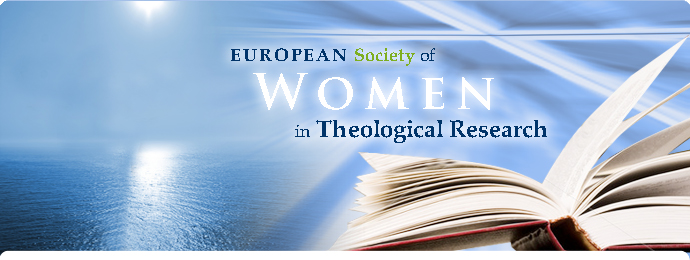about the Conference theme
Holy texts: authority and language
Seen from a mainstream theological perspective, the theme is first and foremost one of hermeneutics.
How to make the holy texts of the different religious traditions meaningful and authoritative for the faith and lives of men and women today. However, this does not mean that there are no questions to be raised regarding the relations between holy texts, authority and language.
When 'gender' is added as a fourth term, the relations of the terms 'holy texts', 'authority' and 'language' become wringing and even unhinged, because the holy texts of the tradition(s) have been exposed by feminist theologians as androcentric and misogynist. Moreover, the process of the making of the canon of the holy texts has gradually effaced oral traditions and (thereby) the authoritative voice of women. This latter process is far from finished as post-colonial analyses of the Christian missionary activities and the role of (translations of) the bible in Africa and Asia show.
To many women, it is therefore difficult to affirm the authority of the holy texts of the (Christian) tradition, because the issue of the authority of holy texts becomes primarily an issue of power, of the exclusion of the voice and the traditions of women. They hear the argument of the holiness of the text used to set limitations upon their public performance and /or participation in (the) liturgy by reading the holy texts, or upon the possibility to interpret the texts in and through a homily. These are all manifestations of the fact that the notions 'woman' and 'authority' maintain difficult relations. Authority is not easily ascribed to women neither by men nor by women. Nor do many women aspire to gain authority, because of its strong association with 'power over'. This analysis in turn raises the question what this would mean for the generation of 'alternative' holy texts of and for women. Is the idea of 'holy texts' inimical to feminist theology? Is the idea of authoritative texts too much associated with the process of inclusion and exclusion? Or is it the problem that women find it difficult to grant authority to an other woman? Or - is it a problem of women's difficulty with claiming authority, claiming to speak in the name of God?
This list of analyses and questions concerning the relation between holy texts, authority and language has brought us to the decision to divide the theme of the conference into three central themes for the keynote lectures, notably 'holy texts and authority';'authority and (body-) language';'language and holy texts'. Such issues as the holiness of images, or the ex- and inclusiveness of translations, will probably not be addressed in the key-note lectures. We hope that they will be addressed in the mini-lectures. We therefore strongly invite members of the Society to send a proposal for mini-lectures which addresses the theme of the conference or one of the questions raised above. This registration form includes forms for mini-lectures, paper sessions and poster sessions. Also, we kindly ask you to fill in a form with information about yourself. This form will be a page in the booklet with conference information, which you will receive upon arrival at the conference.
The Organising Committee:
Dr. Anne Claire Mulder
Dr. Magda Misset-van de Weg
Drs. Mirjam Vermeij
Drs. Willien van Wieringen
Back

